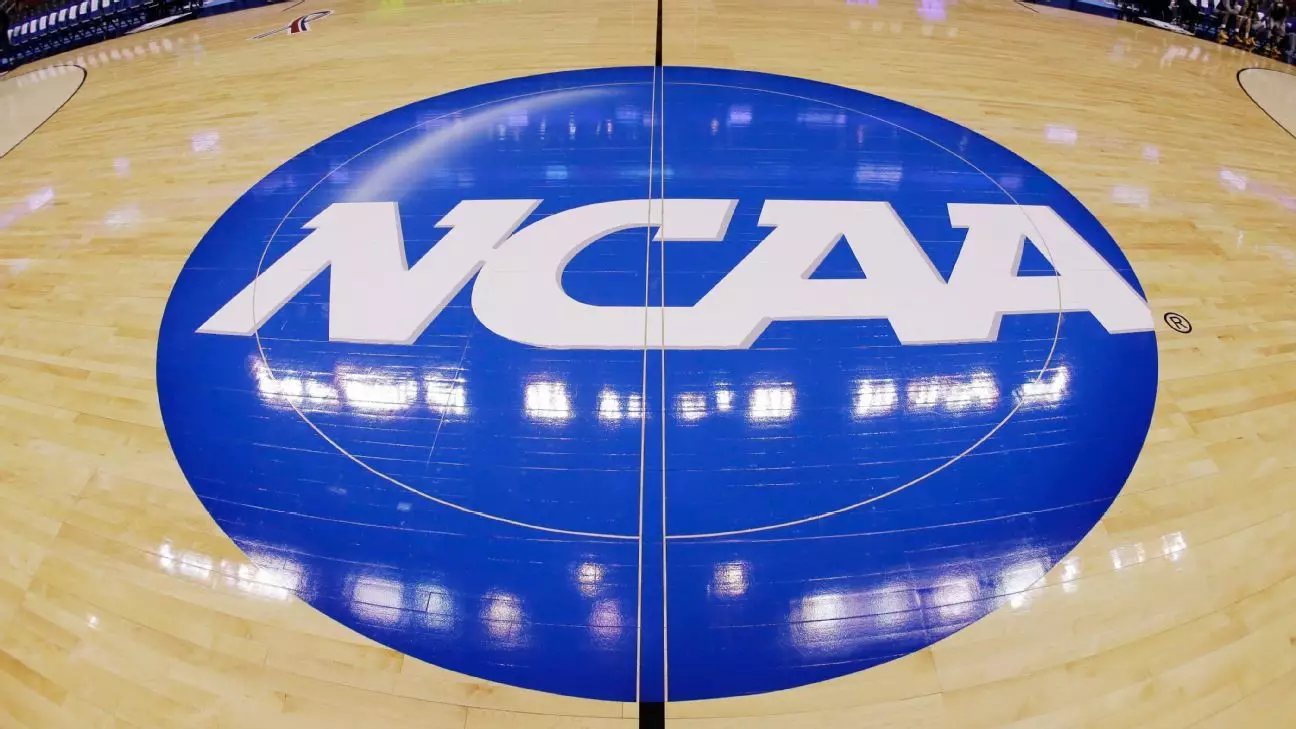In a stunning rebuke to the NCAA and its proposed settlement, federal Judge Claudia Wilken has underscored a critical flaw in the governing body’s plans for college sports. The multibillion-dollar agreement, intended to enhance student-athlete opportunities, is now ensnared in controversy due to its implications for roster sizes. In a world where the athletic aspirations of young individuals hinge precariously on administrative decisions, Judge Wilken’s intervention serves as a necessary spotlight on the broader issues of exploitation and long-term stability in college athletics.
The NCAA is operating in a bubble of its own making. The idea that an immediate implementation of roster size restrictions could force current athletes off their teams is not merely an inconvenience; it is a travesty that undermines years of dedication and sacrifices made by these individuals. By prioritizing a framework that benefits the institution over the individuals who comprise it, the NCAA demonstrates a severe disconnect from the moral responsibility it bears to protect its student-athletes.
Understanding the Stakes: Financial Gains vs. Student Welfare
The settlement, reportedly worth $2.8 billion, is a watershed moment for college sports, promising a system where athletes can earn direct payments. However, this apparent advancement comes with a significant catch: roster limits imposed to prevent wealthier institutions from monopolizing talent. The critical question here remains: at what cost do these financial reforms come? If the NCAA’s rushed changes endanger the positions of current athletes, the entire deal starts to feel less like progress and more like a cash grab masked in benevolence.
Judge Wilken’s ruling highlights the precarious nature of the changes being proposed and raises a crucial point: the NCAA’s insistence on immediate implementation reflects a lack of genuine concern for the athletes involved. Simply put, the potential consequences of losing their spots on teams could spell disaster for hundreds—if not thousands—of college athletes who’ve already taken great personal and financial risks to pursue their dreams.
The NCAA’s Flawed Defense: A Crisis of Accountability
In defending its policies, the NCAA argues that altering roster limits is logistically impractical due to schools already initiating cuts based on anticipated changes. This defense is disingenuous at best and farcical at worst. Shouldn’t an organization of the NCAA’s stature prioritize the athletes’ well-being over logistical nightmares they themselves have created? By prioritizing organizational convenience over individual welfare, the NCAA is demonstrating a systemic issue in how college sports operate.
Wilken was steadfast in her critique: any disruption caused by compliance with the settlement was a problem of the NCAA’s own making. This rebuke should incite a reckoning within the organization, urging those in power to reconsider how decisions are made and who benefits from them. Instead of creating a sustainable future for collegiate sports, the NCAA seems intent on maintaining the status quo, even if it means sacrificing current athletes.
The Voices of the Athletes: Unfinished Business
The real heroes in this unfolding saga are the athletes who have bravely stepped forward, articulating their fears and advocating for their rights. Gannon Flynn, a talented swimmer from Utah, epitomizes the courage needed to challenge and disrupt a flawed system. He represents a cadre of athletes whose futures are at risk simply because of an ill-timed policy shift by the NCAA.
When Flynn expressed his relief at Wilken’s ruling, it signified more than just individual concern; it embodied a collective grievance that must be addressed comprehensively. Current athletes need to know they will not be collateral damage in the NCAA’s attempts to “keep up” with the demands for reform. The stakes are far too high for the NCAA and its member institutions to ignore the voices of athletes who, ultimately, are the ones who will bear the brunt of these decisions.
The Path Forward: A Dialogue on Equity and Inclusion
With Wilken ordering both the NCAA and the plaintiffs to reconvene and discuss possible modifications to the settlement, there is a flicker of hope. This presents an opportunity for an open dialogue about equity and inclusion in college sports—one that should include input from the very athletes these policies impact directly.
As the NCAA navigates this treacherous terrain, it must recognize that its legitimacy hinges not only on financial settlements but also on its morality and respect for the athletes it represents. If this conversation can pivot from one of mere compliance to one that genuinely considers the implications of changes on the lives of student-athletes, we may finally see the inception of a system that honors the sacrifices these young individuals have made.
Ultimately, the ongoing saga surrounding the settlement is a stark reminder that in the world of college athletics, the fight for fairness and respect must always be at the forefront. Only then can we strive toward a future where college sports can genuinely reflect the values of equity, opportunity, and respect for all its participants.


Leave a Reply